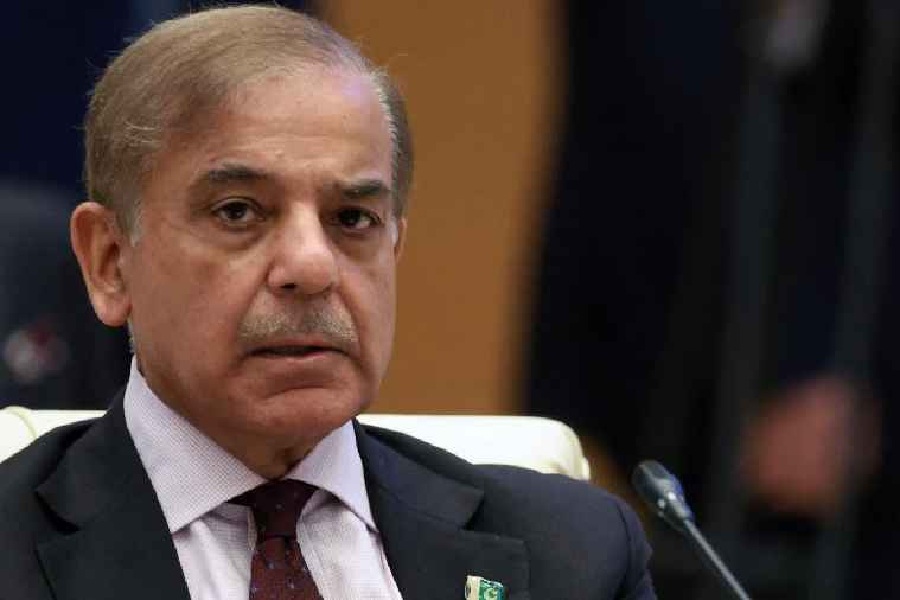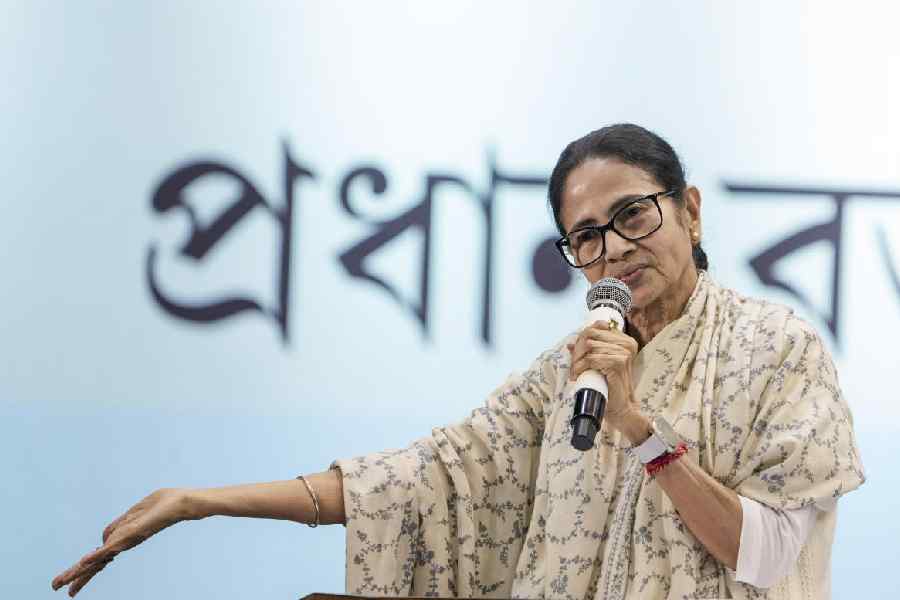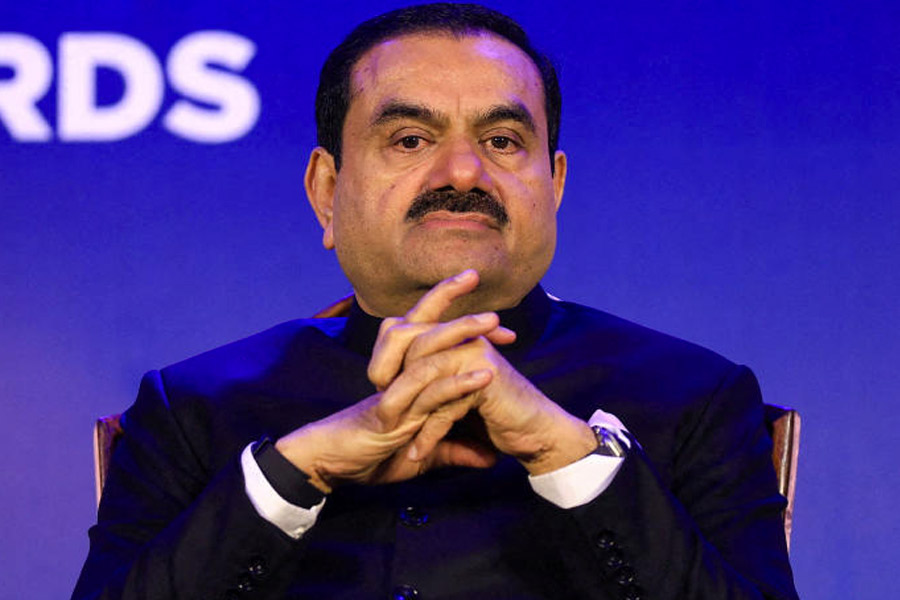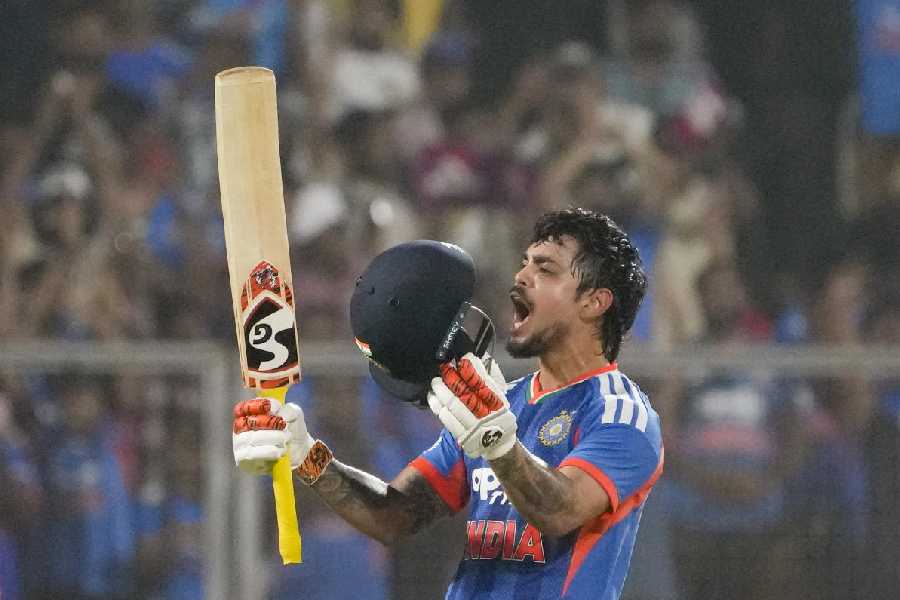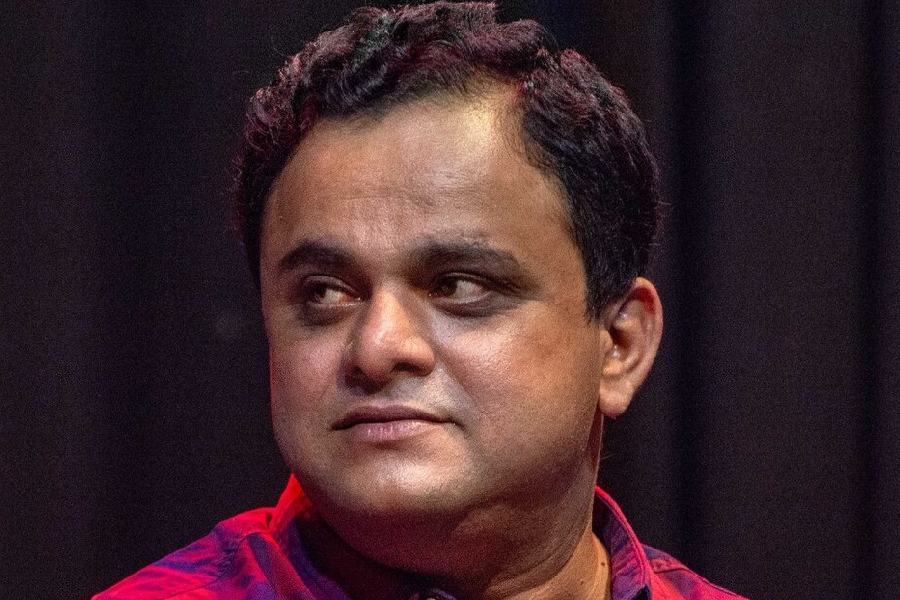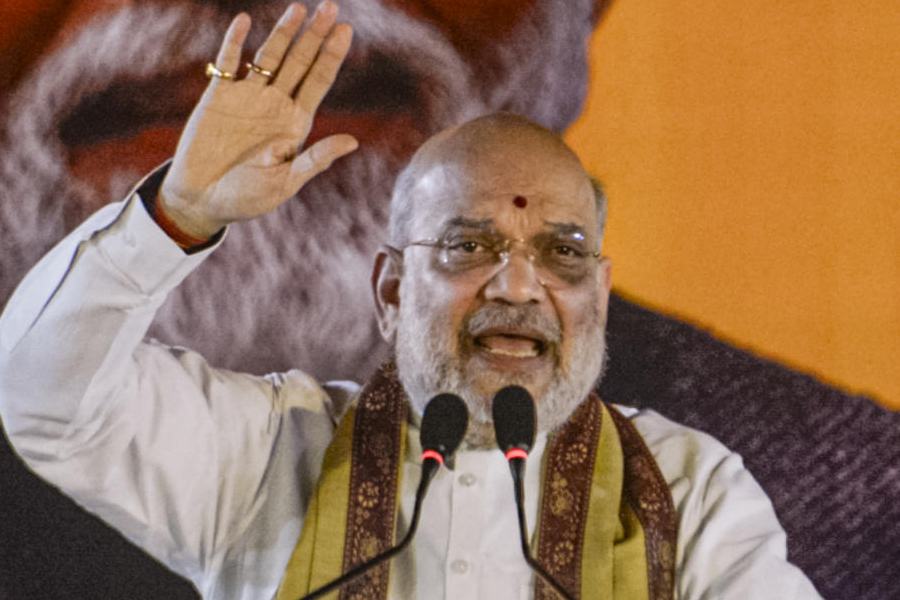Jadavpur: As many as 16 of the 18 teachers in the English department of Jadavpur University have said they would not be part of the undergraduate admission process.
The executive council of the university had on Wednesday scrapped the admission tests "this year" and opted for a board marks-based process, triggering a gherao of the vice-chancellor and others by a section of students.
At 11.20pm on Thursday, 31 hours after the blockade began, the students allowed the vice-chancellor and the others to leave. The students, who refused to call it a gherao but a sit-in, said they would force the varsity to cancel the marks-based system.
The unprecedented step by the 16 teachers struck a chord with emeritus professor Supriya Chaudhuri.
In a note to The Telegraph, Chaudhuri said: "I understand the very deep sense of anguish that has prompted this decision on the part of the teachers of the English department. They are being forced to take part in an admission procedure that they explicitly reject. They have already made it clear that the admission test is vital in order to judge the aptitude of candidates for a literature course.
"The interpretation of the advocate-general's opinion which has produced this situation - i.e. that the teachers should be kept out of the admission process - is completely uncalled for. It casts aspersions on their ability to choose students whom they will go on to teach. Why should they cooperate with a system that they do not endorse and which is both ineffective and insulting to them?"
Abhijit Gupta, head of the English department, is not among the 16 teachers but said they enjoyed his "full support". Gupta said he would have to do his job as the head but added that it was not clear what "I am expected to do in this new system" because in his entire teaching career, JU had had admission tests and not a system based entirely on board exam marks.
The only English teacher who is formally not part of this unprecedented protest at JU is Manojit Mandal, the state higher education council's nominee to the executive council. Mandal was among the nine executive council members who were in favour of replacing the admission tests.
Asked why he was not among the protesting teachers, Mandal told this newspaper on Thursday evening: "Apart from the head of the department, none of us is legally bound to be part of the admission process as it's the job of the higher administrative body, in this case the admission committee.... However, in any democratic set-up, all of us have the right to dissent in a decent manner, unless I am duty bound or under obligations to perform certain official duties and responsibilities."
Some of the 16 teachers said on Thursday that the university's stand was tantamount to suggesting that it did not trust its own teachers.
"If that is the case, we should not get involved in the process. Anyway, no one has sought our involvement. Instead, they don't want teachers to be associated with the admissions," said professor Amlan Dasgupta.
Vice-chancellor Suranjan Das, who emphasised that the change was "only for this year", confirmed at a news conference that there was a "difference of opinion" at the executive council meeting on Wednesday but credited the "spirit of democracy" for that.
Das added: "There was no voting. Unfortunately, an English media based in Calcutta had presented a report in such a way as if there was a voting. There was no voting...."
The Telegraph, which made no mention of any voting, had reported that nine members had favoured the change while six had wanted the tests to continue - which Das confirmed.
Referring to the marks-based process, Das said: "That was the opinion of nine.... Six honourable members clearly stated that they still preferred the admission test as the best possible alternative."
WE CONDEMN GHERAO, SIR, BUT DID YOU WHEN YOUR PREDECESSOR FACED IT?
.jpg)
Suranjan Das, the Jadavpur University vice-chancellor who was held hostage since Wednesday evening before being allowed to leave on Thursday night, held a media conference at his office in the afternoon and said:
“It is again unfortunate that the way the students have kept us under wrongful confinement has not been addressed by the media in general terms, not all media but most of the media.”
The siege of Das and the other executive council members cannot be justified by any means in a civilised society.
The gherao, which struck deep roots in Bengal during Left rule, rears its head with alarming regularity on state campuses. In fact, the JU post that Das eventually filled became vacant in 2015 because of a gherao-related controversy. The then VC, Abhijit Chakrabarti, was forced to exit after police were called in to rescue him from a gherao and allegations of atrocities on the students followed.
While the September 23, 2014, gherao — to protest inaction on a molestation charge in JU — was going on, vice-chancellors of several universities had held a media conference to discuss the impasse. VCs from three prominent varsities did not attend the media conference: one of the missing VCs was Das, who then headed CU.
On Thursday, asked about the media conference in 2014, one of the academics who had attended the event said one VC could not take part because of a meeting (that VC later in the day denounced the gherao but added that, theoretically, she did not like calling the police in).
But the academic could not recall Das having issued any statement on the gherao. On that day in 2014, Das, heading a government-appointed panel to probe the alleged molestation, was in JU to seek documents related to the case. Das was looking into the molestation charge, not the gherao, and little prevented him from speaking out had he wanted to do so. Phone calls from this newspaper to Das on Thursday evening went unanswered.

.jpg)
